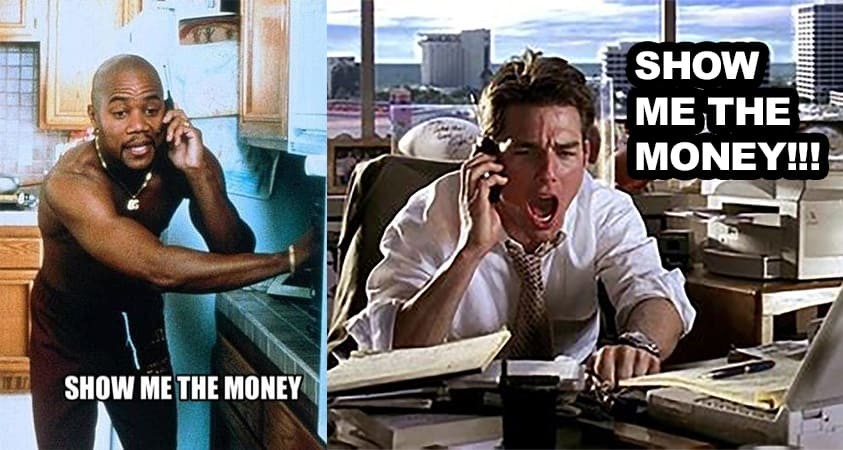In the movie “Jerry Maguire,” the inciting incident is the protagonist’s departure from his established agency to pursue his own principled approach to managing professional athletes. After a rousing call to action on his way out the door that falls on deaf ears (but one), he rushes to call his clients as quickly as possible, before his nemesis at his former firm can poach them. His first call is to a quirky football player named Rod Tidwell who keeps him on the phone with dilatory requests to yell things like, “Show me the money.” Jerry cannot call his previous clients in time and loses them all. He has retained Rod but on a probationary basis.
As a salesman, Jerry should have hung up on Rod as soon as Rod started with his crazy demands.
How many buyers assume that their salespeople are desperate for the business?
What is a good salesperson anyway?
They’re experts at solving a particular kind of problem using the tool that they represent. The key point of any sales interaction is to determine a few issues.
What is your problem?
Does this tool solve your problem?
What other tools or approaches could put your company on a better path?
Is this the best solution?
Is this the best solution for the money?
Is this the best solution for the money, delivered by a company that will work well with me in the future?
Is this a vendor with which we can collaborate to develop products to solve other problems we might have in the future?
A good salesperson is like a consultant that you can access for free. Yet, this isn’t the framing of too many buyer-salespeople conversations.
Too often, the buyer thinks of it as an adversarial process.
In an adversarial process, the game is zero-sum. The buyer thinks that they have lost if they haven’t taken every single crumb off the table. The buyer can be confrontational. The buyer doesn’t pay promptly. The buyer demands unreasonable things. The buyer doesn’t approach the relationship as something sustainable, even if it’s just for a one-off transaction. They’re aggressive without needing to be.
The Pandemic was great for salespeople because supply chain constraints enabled them to fire (at least for a period of time) their worst customers. It was a luxury to put on allocation the clients who were bullies or who paid late or who demanded perquisites.
The beauty of the Request for Proposal is that it can force the interaction to be more professional. Buyers can focus on getting the information they need. If salespeople are free consultants, why wouldn’t buyers want to generate as much competition as possible on ideas, even as you create the conditions in which suppliers will give you their best price?
Salespeople want opportunities. They want to find companies with problems they can solve. They want a way to engage with them that is simple and efficient. They want to speed the communication to its logical end. They want to find and close customers who will be valuable partners where value means an economic return, but also a productive, long-term relationship of mutual benefit.
This is what we deliver with EdgeworthBox. It is a set of tools, data, and community that simplifies the existing procurement process, sitting as a layer on top of your existing approach be that email and spreadsheets or an ERP module. Leverage the value of sales relationships in a professional way. It is elastic. Buyers only pay for what they use. It is also built for joint procurement. Collaborate internally. Work together with other organizations. Leverage accessible, structured data about the products you are in the market to buy or sell Two heads are better than one. If you’d like to learn more, please email us and we’d be happy to tell you more.





